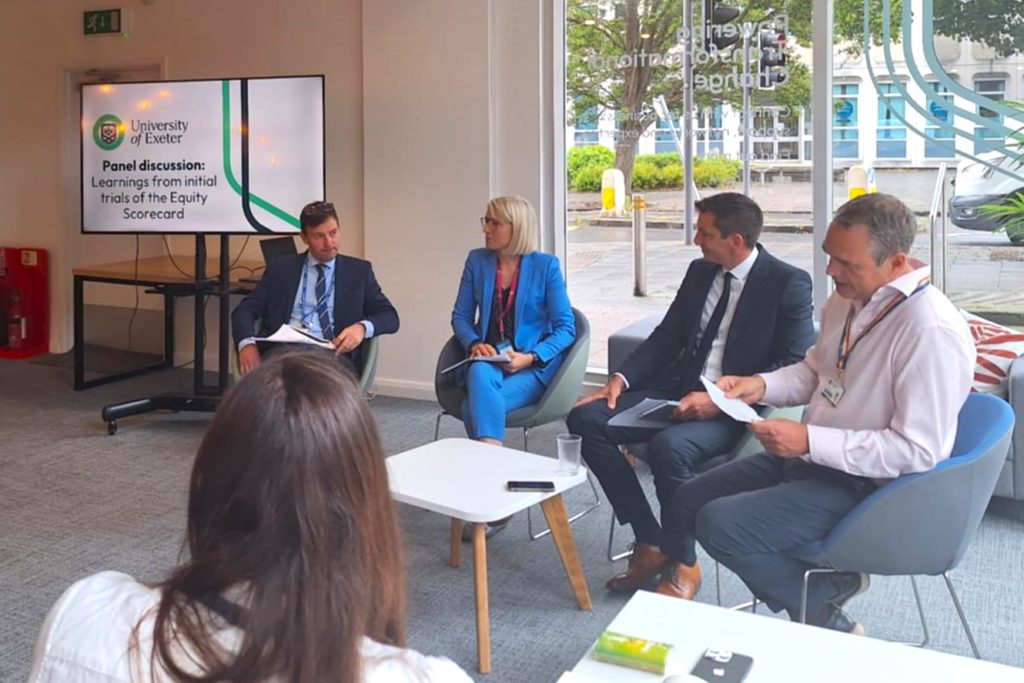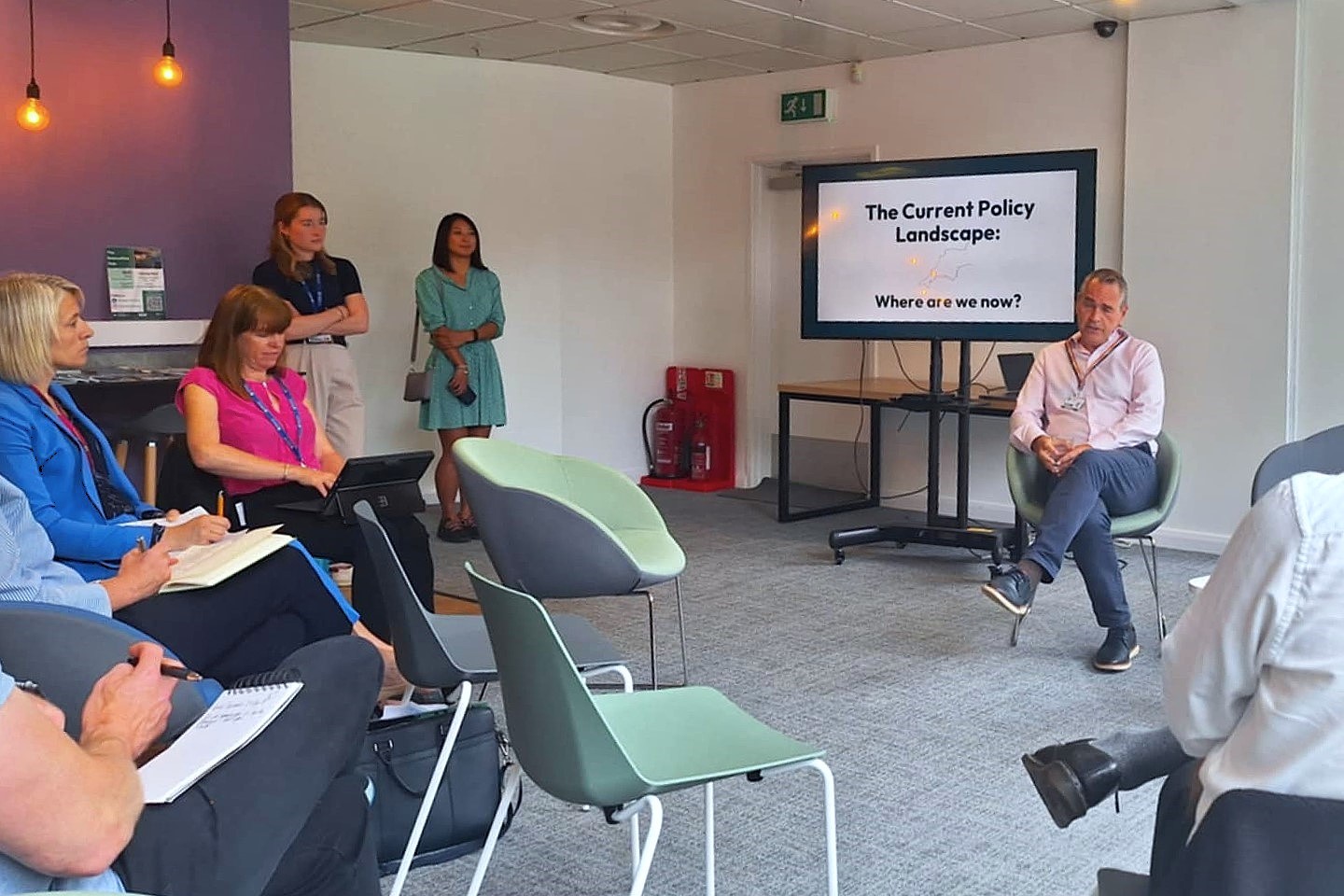On 21st May, teacher leaders from across Somerset, Devon, and Cornwall came together for the Equity in Education Mini-Conference, hosted by the South West Social Mobility Commission (SWSMC) and Policy@Exeter at the University of Exeter’s Innovation Hub. The event marked an important milestone in the development of the Equity Scorecard and provided a platform for sharing innovative, practical approaches to level the playing field of education. Below, the SWSMC and Policy@Exeter share their insights on the day.
At a time when stark inequities continue to blight the education system both regionally and nationally, educators are seeking new ways to ensure schools benefit all our children, particularly those from under-resourced backgrounds. Teachers reflected on developing an ‘equity mindset’ – avoiding the deficit approaches that implicitly blame pupils for their underachievement by focusing on what they lack rather than addressing the barriers that limit their learning.
Equity Scorecard
The Equity Scorecard is a pioneering self-evaluation tool designed for schools and multi-academy trusts. By setting out good bets for equitable practice and drawing on public data, staff and student surveys, it provides a clear and actionable picture of how well schools are serving their pupils facing extra cultural and material barriers to their learning. Initially designed for secondary schools in England, a Primary Scorecard is now in development for early 2026. The South West Social Mobility Commission is currently piloting the scorecard with schools across the region, before offering the tool to schools across the country and wider afield.
From Policy to Practice
The day opened with a welcome from Professor Adam Watt, Deputy Pro-Vice-Chancellor for the University of Exeter’s Faculty of Humanities, Arts and Social Sciences, who emphasised the importance of the Equity Scorecard in combatting educational disadvantages in the region
Professor Lee Elliot Major OBE, the UK’s first Professor of Social Mobility and co-author of the book Equity in Education, shared reflections on the wider policy landscape. He has been invited to speak about the equity approach in education across the world. The scorecard has resonated deeply with educators, aligning with their core values of fairness, inclusion, and evidence-informed practice. Stressing the importance of working with schools — not imposing change on them — he described the scorecard as a practical, popular tool that helps bridge the gap between national policy ambitions and the daily realities faced in classrooms.
Panel Insights

In a panel chaired by Professor Elliot Major, education leaders shared candid experiences of implementing equity strategies through the scorecard:
- Matthew Shanks (CEO, Education South West)
- Lucy Gambier (Director of Secondary Education, Cornwall Education Learning Trust)
- Dom Wilkes (Headteacher, Budehaven Community School)
Key themes that emerged included:
- Equal ambition: Holding schools to high expectations while resisting the trap of deficit thinking—avoiding the assumption that location or background determines potential.
- Balanced accountability: Merging rigorous standards with relational leadership that prioritises trust and understanding.
- Continuous learning: Recognising that great work is already underway, and building a culture where staff feel empowered to keep learning and improving.
Case Studies
Following a networking lunch, attendees heard case studies from Education South West, the Ivy Education Trust, and Truro and Penwith Academy Trust. These showcased a range of equity strategies, including:
- Mapping pupil vulnerability to target support effectively
- Building inclusive personal development programmes across school phases
- Creating strong foundations through behaviour policy reform and school routines
Importantly, these efforts were not solely focused on test scores, but also on broader outcomes: student belonging, attendance, and opportunities to thrive—hallmarks of a truly equitable education.
Grassroots movement

Despite the challenges faced by educators, the mood in the room was optimistic. There was a clear sense of shared commitment to creating an equitable education system serving all children across the south west. Later in the year the Commission will be publishing an initial evaluation of the Equity Scorecard. For many teacher leaders it has become a rallying point inspiring a grassroots movement to help all children flourish.

